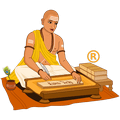























Sunrise06:49, Apr 17
Sunset18:25, Apr 17
MoonriseNo Moonrise
Moonset17:44, Apr 17
Shaka Samvat2433 Virodhakrit
Vikram Samvat2568 Pramoda
Gujarati Samvat2568 Rudhirodgari
Amanta MonthPhalguna
Purnimanta MonthChaitra
WeekdayShaniwara
PakshaKrishna Paksha
TithiChaturdashi upto 09:20, Apr 17
TithiAmavasya upto 05:39, Apr 18
NakshatraUttara Bhadrapada upto 13:19, Apr 17
YogaIndra upto 18:48, Apr 17
KaranaShakuni upto 09:20, Apr 17
KaranaChatushpada upto 19:31, Apr 17
KaranaNagava upto 05:39, Apr 18
Pravishte/Gate28
Rahu Kalam09:43 to 0x20bb0011
Gulikai Kalam06:49 to 0x20bb0011
Yamaganda14:04 to 0x20bb0011
Abhijit12:14 to 0x20bb0011
Dur Muhurtam06:49, Apr 17 to 07:35, Apr 17
Dur Muhurtam07:35, Apr 17 to 08:22, Apr 17
Amrit Kalam09:03, Apr 17 to 10:28, Apr 17
Varjyam23:51, Apr 17 to 01:15, Apr 18
Notes: All timings are represented in 24-hour notation in local time of Pangai, Tonga with DST adjustment (if applicable).
Hours which are past midnight are suffixed with next day date. In Panchang day starts and ends with sunrise.


 Mithuna 32:57+
Mithuna 32:57+ Punarvasu 39:03+
Punarvasu 39:03+

 Karka 40:54+
Karka 40:54+ Ashlesha 40:54+
Ashlesha 40:54+

 Simha 02:49
Simha 02:49 P Phalguni 44:18+
P Phalguni 44:18+

 Kanya
Kanya U Phalguni 46:28+
U Phalguni 46:28+

 Tula
Tula Swati 06:35
Swati 06:35

 Vrishchika
Vrishchika Vishakha 33:36+
Vishakha 33:36+

 Dhanu
Dhanu Mula 41:38+
Mula 41:38+

 Makara
Makara U Ashadha 44:17+
U Ashadha 44:17+

 Makara
Makara Shravana 44:23+
Shravana 44:23+

 Kumbha 34:34+
Kumbha 34:34+ P Bhadrapada 39:58+
P Bhadrapada 39:58+

 Meena
Meena U Bhadrapada 37:19+
U Bhadrapada 37:19+

 Vrishabha
Vrishabha Rohini 47:37+
Rohini 47:37+

 Vrishabha 34:44+
Vrishabha 34:44+ Mrigashira 46:01+
Mrigashira 46:01+

 Mithuna 38:52+
Mithuna 38:52+ Punarvasu 44:53+
Punarvasu 44:53+

 Simha
Simha Magha 00:03
Magha 00:03

 Kanya
Kanya Hasta
Hasta

 Kanya 44:30+
Kanya 44:30+ Hasta 31:07+
Hasta 31:07+In Hindu Calendar, the day starts with local sunrise and ends with next day local sunrise. As sunrise time is different for all cities, Hindu Calendar made for one city is not valid for any other city. Hence it is important to use location based Hindu Calendar, like this website. Further, each Hindu day consists of five elements, which are called angas. These five elements are -
In Hindu Calendar, all five elements together are called Panchang. (In Sanskrit: Panchang = Pancha (five) + Ang (part)). Hence Hindu Calendar which shows all five elements for each day is called Panchang. In South India Panchang is known as Panchangam.
When Hindu Calendar includes Muslims, Sikh, Christian, Buddhist and Jain festivals, including national holidays, it is called as Indian Calendar.